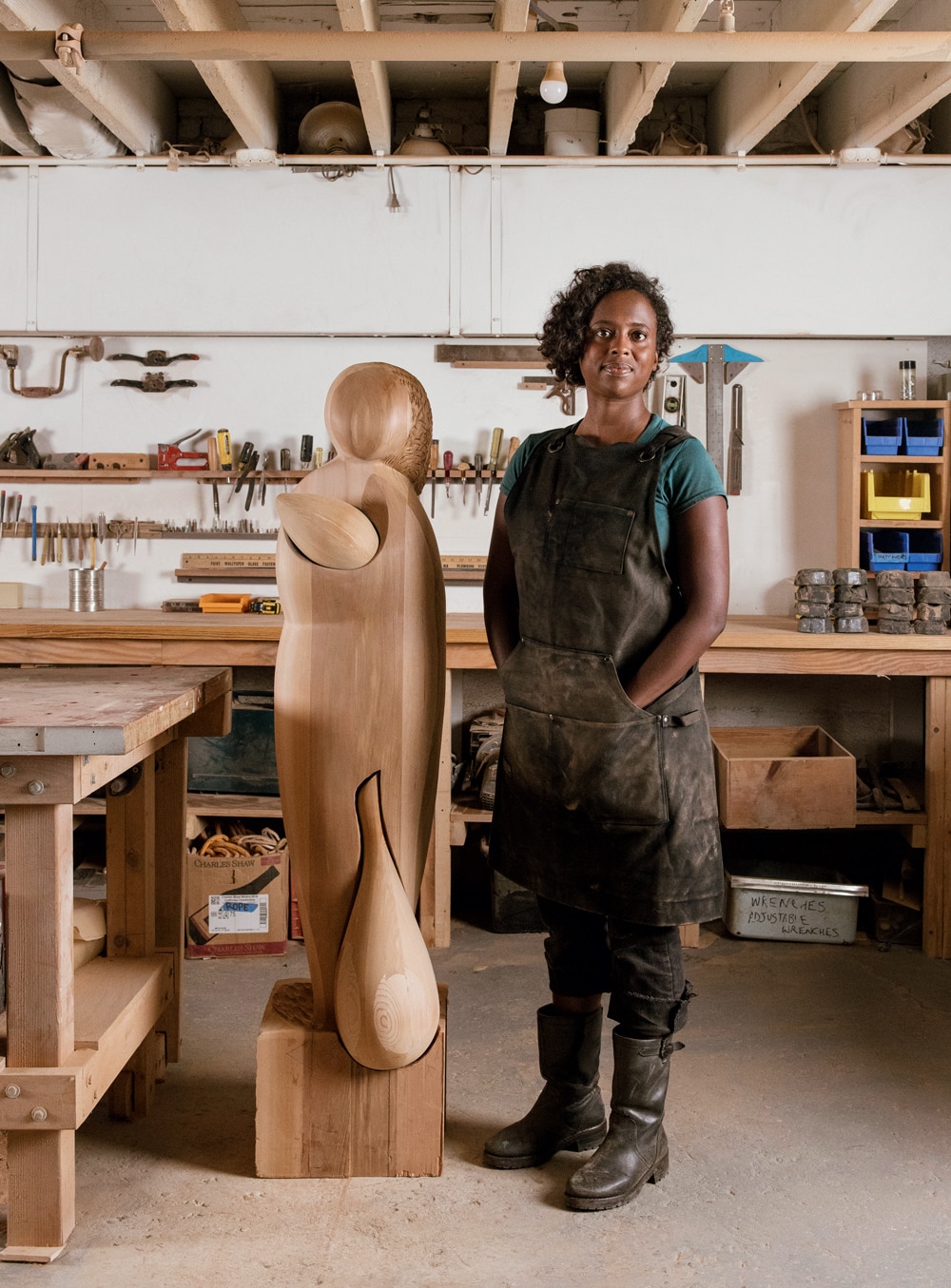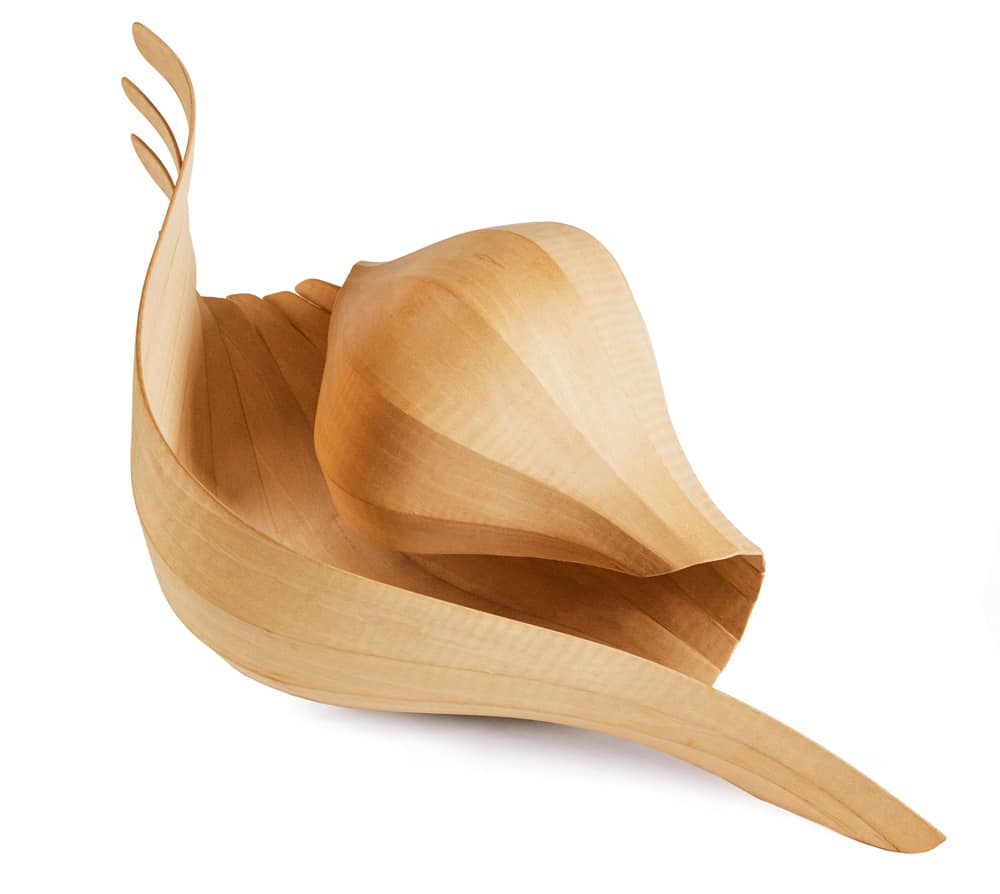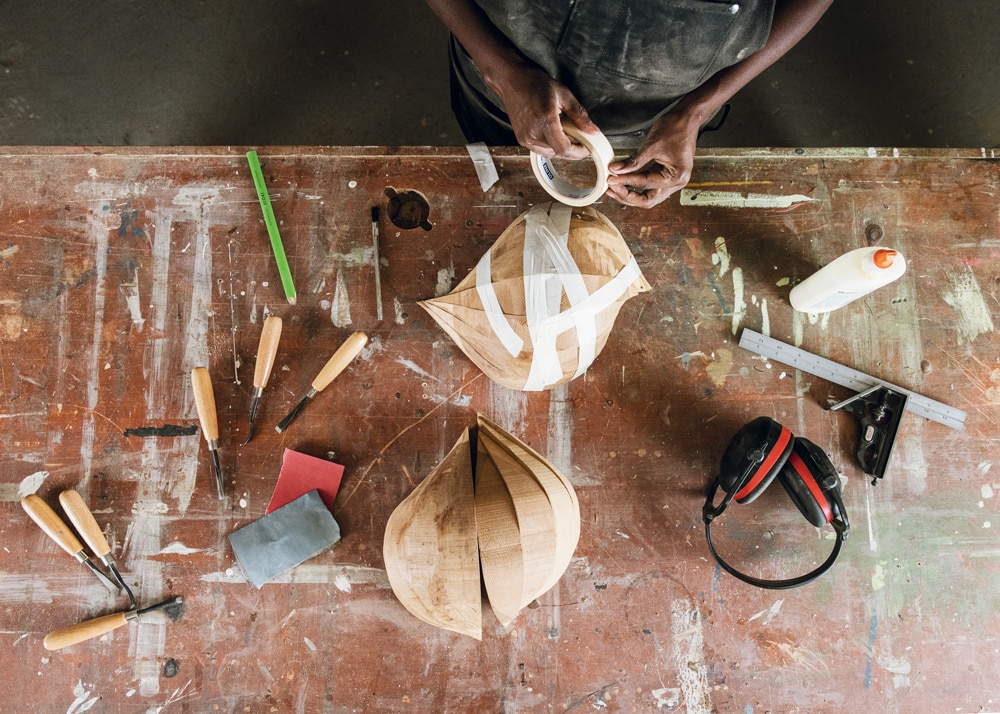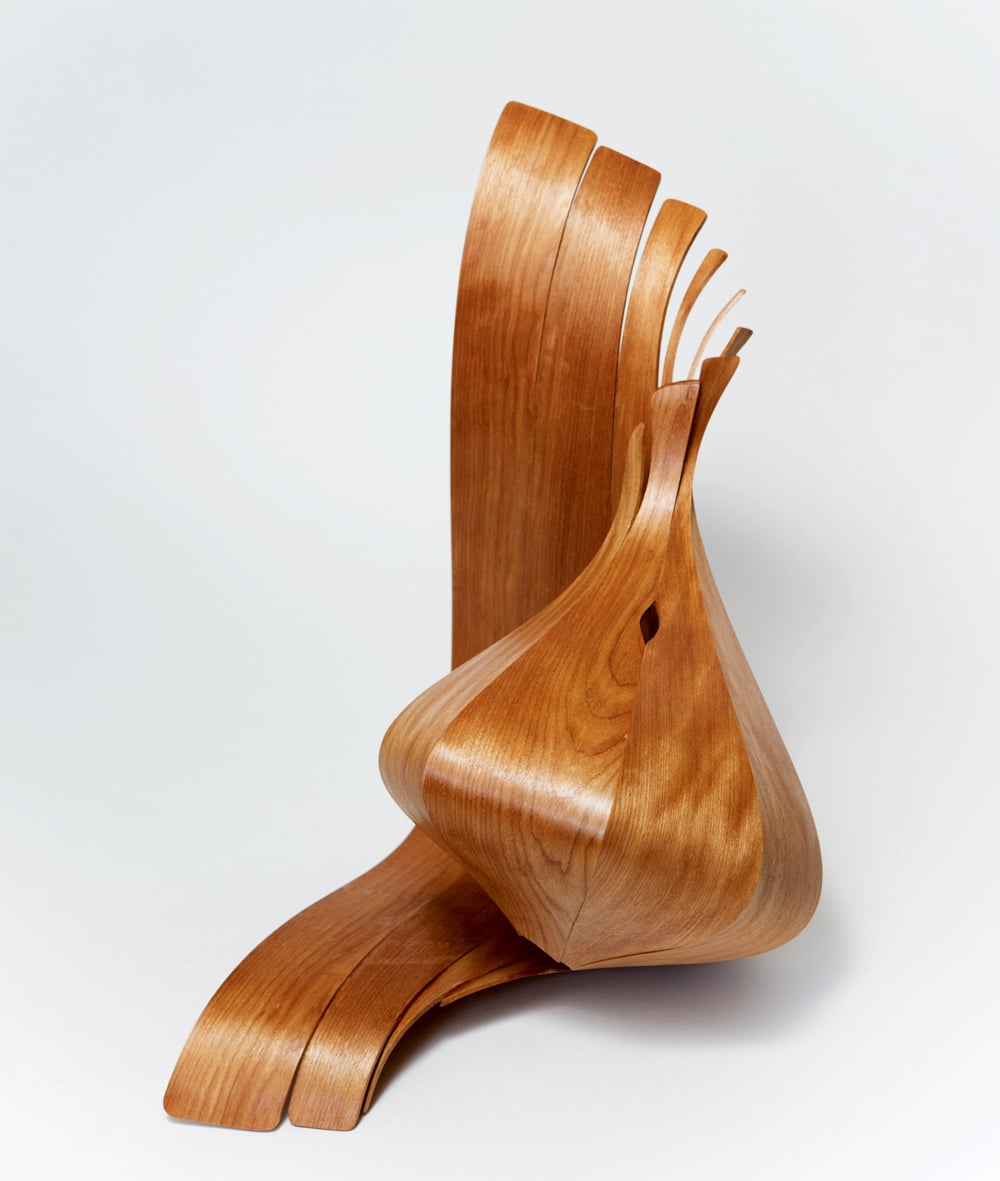Boston Artist Alison Croney | Open Studio
Boston artist Alison Croney Moses taps into the power and poetry of wood.

Alison Croney Moses with her 2021 sculpture My Babies, featuring two small pods nestled into the main figure, all carved from a single block of cedar. “It captures a moment in time after the birth of children,” she says, ”when mother and children are still dependent on each other.”
Photo Credit : Jesika Theos
Photo Credit : Jesika Theos
I push the wood to its limits, and it pushes back,” says Alison Croney Moses. “Sometimes you can hear it, protesting.”
She is, at this moment, flanked by a nearly life-size sculpture bearing two pods, the cedar wood smoothed to silken softness, the entire piece embodying its title, My Babies. It is one piece in her series called My Black Body, and in a matter of hours it will be on its way to Philadelphia, where it will join its companion sculpture, My Belly, and a 3½-minute video, We Are Black Vessels—all her contributions to the Designing Motherhood exhibition at the Center for Architecture and Design. Her daughter, who is 2, was very upset to see them go.
It was daunting to work at this large scale, confesses Croney Moses, 38. Although as a student in furniture making at the Rhode Island School of Design, she had certainly made tables and chairs. And after eight years at the Eliot School in Boston—where she is now associate director but has previously taught woodworking and coordinated programming for thousands of young people—she has had plenty of practice keeping her woodworking skills alive. Creating larger-than-life wooden shells of almost ethereal beauty, spiraling out of thin cedar, holly, and redwood veneers. Sanding these objects, or her chunky little cedar pods, until they pass the touch test—so irresistibly smooth that they demand hands on.

Photo Credit : Jesika Theos
“But after having my second child, I was trying to figure out how I am going to make art again,” she says. And there it was, the eternal conflict. On the one hand, raising two small children with her husband, David, and meeting daily job demands. On the other, trying to carve out the space to do creative work. Yet here she is, at the Sculptor’s Workshop in Boston’s Allston neighborhood, a studio building that houses other local artists, including renowned woodworker Mitch Ryerson.
Then Croney Moses articulates the philosophy that threads through her life, like grain through wood, fusing the elements of her life that she details as “artist, craftsperson, educator, art administrator, mother, and Black woman.” Just do it. “Do something, or this will never happen,” she insists. “You can’t dwell on choices. You can’t obsess. You can’t get stuck. You just have to make the decision. And if it doesn’t work out, you adjust, adjust, adjust.”
And she laughs, a full-bodied reaction to the notion that somehow each of these roles might be separate endeavors. “My life is not that compartmentalized. Everything feels very much related, which is the way that it works for me.”
Which is how Croney Moses came to form a moms-of-color group in her neighborhood of Jamaica Plain, where Black women come together to support one another. At the same time, she was purposefully creating a more diverse environment for her own children. “Currently it’s rare for my kids to see people who look like me every single day in a very close way,” she says. “If I want to value my own skin and show [my children] that value, then I have to be around people who look like me.” In turn, she poured all of these experiences into her My Black Body artwork. “I’m trying to incorporate things that I value in my personal life into my arts practice,” she explains. “So that it’s one and the same.”

Photo Credit : Jesika Theos
And so, it makes perfect sense that Croney Moses’s sculptures take the form of vessels: things that hold other things. Skilled with chisels, angle grinders, band saws, and molds, she cuts and forms the wood, using bent lamination and coopering—traditional techniques that, she explains, are perfectly suited to making vessels. “When you curve something and then you cooper it together—which is cutting in angles to it to glue together—you naturally make some sort of vessel, whether it’s shell-like, or petals, or pods.”
She admits that sometimes it can be a little tricky to get them to join up. Those effortless, swooping shells? “You’re gluing on a mold that is forcing a compound curve, which wood does not like to do. By the end of the shell, those edges don’t come together anymore, because they’re like, I don’t want to do this, my curve does not meet your curve!”

Photo Credit : Jesika Theos
That tension is what Croney Moses leans into: the process of making. In My Babies, she purposefully let the glue lines show, recalling how she felt she was coming apart at the seams when she was pregnant. And how having children has shifted who she is, and how that goes into her work too. Her son sees her as an artist; her daughter mourns the loss of sculptures that feel like family. But, she emphasizes, “I think it’s really important that children see everyone as artists, and therefore themselves as artists. The only thing that makes an artist is that you’re trying. You’re willing to take a creative risk. You try, you make a mistake, and you find a solution to it. That is being an artist.”
And that is what fills these vessels. Because when I ask what she pours into these pieces as she’s making them, Croney Moses responds, without a moment’s hesitation: “Everything.” alisoncroney.com
Annie Graves
A New Hampshire native, Annie has been a writer and editor for over 25 years, while also composing music and writing young adult novels.
More by Annie Graves

